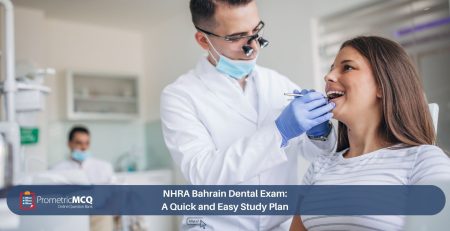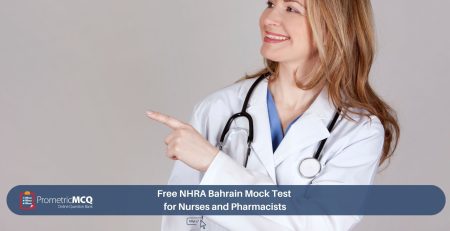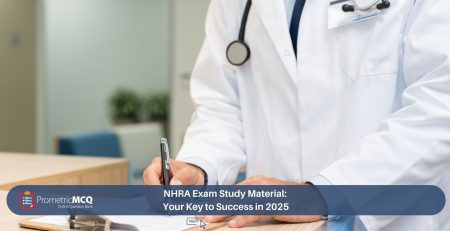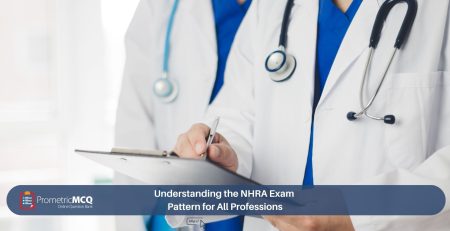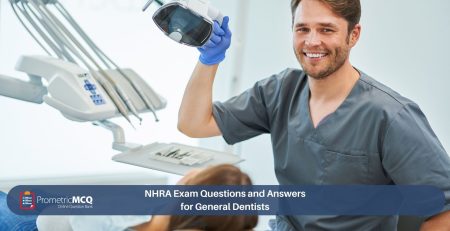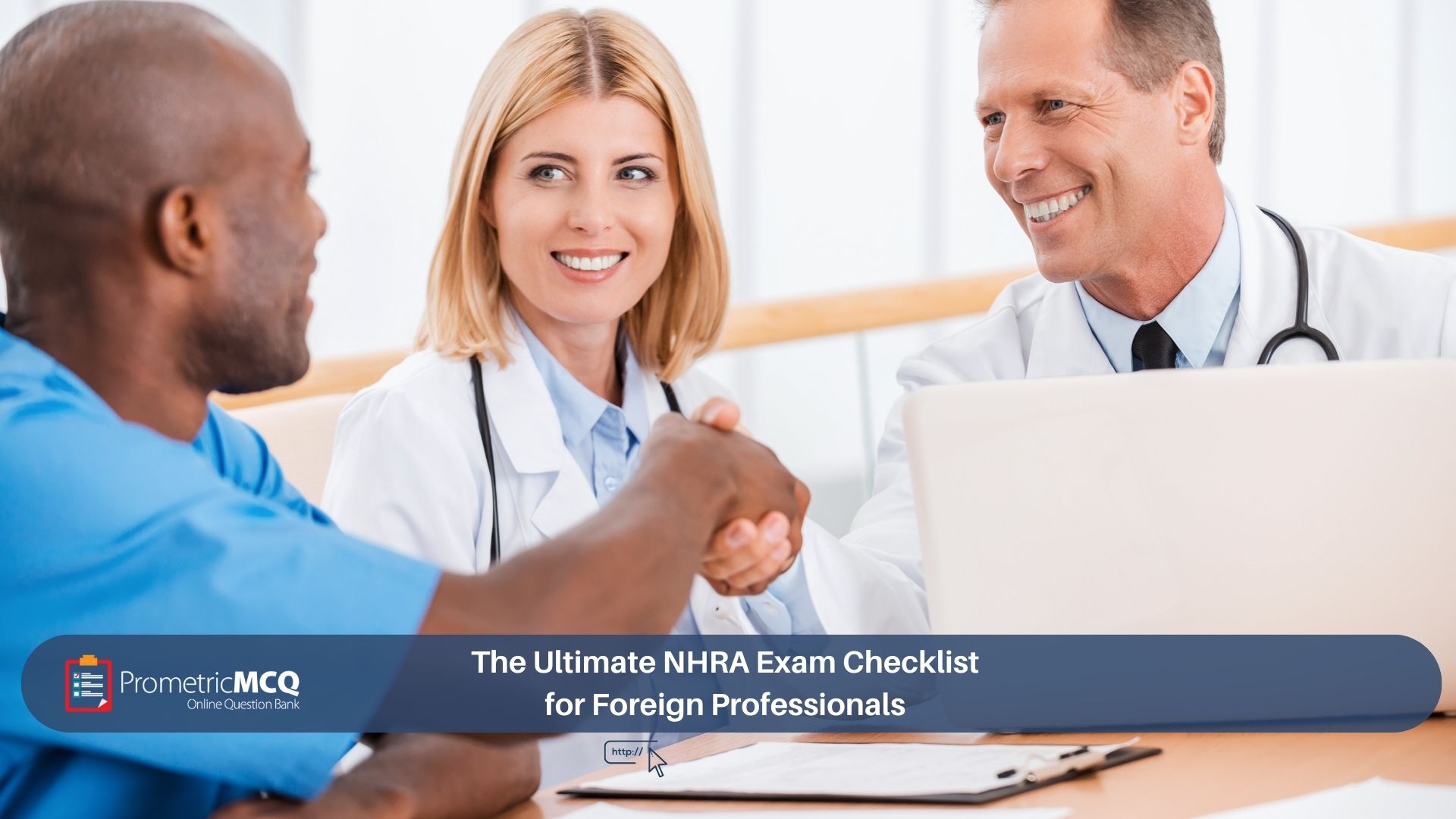
The Ultimate NHRA Exam Checklist for Foreign Professionals
fatima@prometricmcq.com2025-09-19T01:24:20+00:00Table of Contents
ToggleThe Ultimate NHRA Exam Checklist for Foreign Professionals (2025)
For international healthcare professionals, the journey to practicing in the Kingdom of Bahrain is a path paved with significant opportunities and equally significant administrative steps. The National Health Regulatory Authority (NHRA) has established a robust system to ensure that every practitioner meets its high standards of excellence. While this process is thorough, it can often feel complex and overwhelming for those unfamiliar with the requirements. Missing a single document or misunderstanding a step can lead to delays, frustration, and unnecessary stress.
This is where a comprehensive checklist becomes your most valuable asset. A methodical, step-by-step approach can transform a confusing bureaucratic process into a manageable series of tasks, ensuring that you navigate the path from your home country to a licensed career in Bahrain smoothly and efficiently. This guide is designed to be that definitive checklist.
We will walk you through every critical phase of the NHRA licensing journey in chronological order—from the initial document gathering and eligibility checks to the intensive exam preparation, the crucial DataFlow verification, and the final steps toward license activation. This ultimate 2025 checklist, complete with a detailed 10-point FAQ, will serve as your single source of truth, providing the clarity and confidence you need to succeed.
Key Takeaways for Your NHRA Journey
- Organization is Everything: The process is document-heavy. Start gathering and organizing your credentials long before you plan to apply.
- DataFlow is the Longest Pole: The Primary Source Verification (PSV) by DataFlow is often the most time-consuming part of the process. Start it as early as possible.
- The Exam is a Sprint, Not a Marathon: Your exam preparation should be a focused, intensive period of 8-12 weeks, centered on high-quality MCQ practice.
- Follow the Steps Sequentially: The NHRA process is linear. Do not try to skip steps. Awaiting approvals at each stage is a necessary part of the journey.
- Patience is a Virtue: The entire process, from application to license in hand, can take anywhere from 3 to 6 months. Plan accordingly.
Phase 1: The Pre-Application & Documentation Checklist
This is the foundational phase. Getting this right will prevent major headaches later on. Do not proceed to the application until you have every item on this list ready.
☑ Step 1: Verify Your Professional Eligibility
Before you spend any time or money, confirm you meet the NHRA’s basic requirements for your profession. This typically includes:
- Educational Qualifications: A recognized degree (e.g., Bachelor’s, MD, PhD) in your field.
- Professional Experience: The NHRA requires a minimum number of years of recent, continuous clinical experience post-qualification. This is often 2-3 years for general practitioners and nurses, and may be more for specialists.
☑ Step 2: Gather Your Core Professional Documents
Scan high-quality, color copies of the following documents. These will be needed for both the NHRA application and the DataFlow verification.
- Valid Passport: Ensure it has at least 6-12 months of validity.
- Passport-Sized Photograph: A recent photo with a white background.
- Educational Certificates: All your relevant degrees, diplomas, and certificates (e.g., Bachelor’s, Master’s, PhD).
- Academic Transcripts: Official transcripts for all your healthcare-related degrees.
- Professional License: Your current, valid license to practice from your home country or country of last employment.
- Certificate of Good Standing (CGS): A crucial document issued by the licensing authority of your home country/last employment. It must be recent, typically issued within the last 3-6 months.
- Experience Letters: Official letters from all your previous employers detailing your job title, dates of employment, and a brief description of your duties. These must be on official letterhead, signed, and stamped.
- Logbook/Surgical Log (if applicable): Surgeons and some other specialists will need to provide a detailed log of procedures performed over the last 2 years.
- BLS/ACLS/PALS Certification (if applicable): Ensure your basic and advanced life support certifications are up to date.
☑ Step 3: Arrange for Certified Translations
If any of your documents are not in English or Arabic, you must have them translated by a certified legal translator. The original document and the certified translation should be scanned together as a single file.
Phase 2: The Application & Verification Checklist
Once your document portfolio is complete, you can begin the official process.
☑ Step 4: Create an Account on the NHRA Portal
Navigate to the NHRA’s official website and create a new account. You will need to provide basic personal information and a valid email address. This portal will be your central hub for tracking your application status.
☑ Step 5: Complete and Submit the NHRA Application
Fill out the online application form carefully and upload all the documents you gathered in Phase 1. Double-check every entry for accuracy. Pay the initial application fees as required.
☑ Step 6: Initiate the DataFlow PSV Process
Upon initial review, the NHRA will direct you to begin the Primary Source Verification (PSV) with the DataFlow Group. You will need to create a separate account on the DataFlow portal, re-upload your documents, and pay the verification fees. This is the most time-consuming step, often taking 4-8 weeks or more. Track your application regularly and respond promptly to any requests for additional information.
Think of the DataFlow process as a thorough background check. Their job is to contact every university, hospital, and licensing body you’ve listed to confirm your credentials are authentic. Be patient but proactive.
☑ Step 7: Receive Your NHRA Eligibility Number
Once the NHRA has reviewed your initial application and is satisfied, they will issue you an “Eligibility Number” or an approval to sit for the exam. This is your golden ticket to book the Prometric test.
Phase 3: The Exam Preparation & Booking Checklist
With the administrative hurdles underway, your focus must shift to the academic challenge.
☑ Step 8: Understand Your Specific Exam Pattern and Syllabus
While the overall format is consistent, the content is not. You must find the specific syllabus and high-yield topics for your profession. A great starting point is our detailed guide on the NHRA exam pattern for all professions.
☑ Step 9: Develop a Structured Study Plan
Do not study aimlessly. Create a focused 8-12 week study plan. Dedicate specific weeks to major topics, and ensure your plan includes a heavy emphasis on active learning through practice questions rather than just passive reading. For a great template, you can adapt the strategy outlined in our guide on how to pass the NHRA physiotherapy exam on the first try.
☑ Step 10: Invest in a High-Quality Question Bank (QBank)
This is the single most important investment in your preparation. A good QBank with timed, case-based MCQs and detailed rationales is the key to mastering the content and the exam format. Explore a variety of profession-specific MCQs packages to find the one that fits your needs.
☑ Step 11: Book Your Prometric Exam
Using your NHRA eligibility number, go to the Prometric website to schedule your exam. Choose a date that aligns with the end of your study plan. It is advisable to book your slot at least 4-6 weeks in advance, as popular dates and locations can fill up quickly.
Phase 4: The Final Week & Exam Day Checklist
This is about performance, not learning new information.
☑ Step 12: The Week Before
- Take 2-3 full-length timed mock exams to simulate the real experience.
- Review your “mistake log” and do a light review of your weakest areas.
- Confirm your exam time and the location of the Prometric center.
- Prioritize sleep and manage stress.
☑ Step 13: Exam Day
- Eat a good breakfast.
- Arrive at the test center at least 30-45 minutes early.
- Bring ONLY your original, valid passport. No other ID will be accepted.
- Use the restroom before you check-in.
- Stay calm, manage your time, and trust in your preparation. Answer every question.
Frequently Asked Questions (FAQs) for Foreign Professionals
The entire process, from submitting your initial application to receiving your license, can take anywhere from 3 to 6 months. The most significant variable is the DataFlow (PSV) process, which depends on how quickly your former institutions respond to verification requests.
A CGS is an official document from the medical licensing board of your home country (or the country you last practiced in) that confirms you are a member in good standing and have no pending disciplinary actions or restrictions on your license. It is a mandatory document that proves your ethical and professional standing. It must be recent, usually issued within the last six months.
Yes, one of the major advantages of the NHRA-Prometric partnership is that you can take the licensure exam at any authorized Prometric test center globally. You can choose the location that is most convenient for you when you book your exam.
If your report is delayed, you should proactively follow up with the DataFlow support team using your case number. If there is a negative finding (e.g., an employer doesn’t respond or a document cannot be verified), DataFlow will inform you. You may be given an opportunity to provide alternative documentation or contact information to resolve the issue.
No, you do not need a job offer to start the process. You can complete the application, DataFlow verification, and Prometric exam independently. Passing the exam gives you an “eligibility letter,” which makes you a highly attractive candidate for employers. The employer’s role comes at the very end, to help activate the final license.
The NHRA exam is based on international best practices. A fantastic resource is the official website of the World Health Organization (WHO). Their publications and clinical guidelines on various diseases and public health topics are globally recognized and provide an excellent foundation for evidence-based practice.
Costs can vary, but you should budget for several components: NHRA application fees, DataFlow verification fees (which depend on the number of documents), and Prometric exam fees. In total, the process can cost anywhere from USD 500 to USD 1000, not including study materials or travel.
While there may not be a strict upper age limit for licensure, employment policies may be subject to Bahrain’s labor laws, which often have a standard retirement age (typically around 60-65). This is more of an employment consideration than a licensing one.
After you pass the exam, the eligibility letter issued by the NHRA is typically valid for one year. Within this one-year period, you must secure a job and proceed with the final license activation.
There is no automatic license transfer. However, if you hold a valid license and are in good standing with another GCC health authority, the process may be streamlined. You will likely still need to complete the DataFlow verification, but you may be exempted from the licensure exam. This is assessed by the NHRA on a case-by-case basis.
Conclusion: Your Organized Path to a Bahrain Career
The journey to becoming a licensed healthcare professional in Bahrain is a marathon of meticulous preparation, not a sprint. It rewards organization, diligence, and a strategic mindset. By treating this guide as your personal project plan and systematically checking off each step, you can demystify the process and navigate it with clarity and purpose. Your commitment to following this checklist will not only lead to a successful exam outcome but will also set the stage for a smooth transition into a thriving career in the Kingdom of Bahrain.
Ready to Take the Next Step with Confidence?
Our comprehensive MCQ packages are tailored for every major healthcare profession, providing thousands of high-yield questions, detailed rationales, and simulated exams to build your knowledge and guarantee your success.




